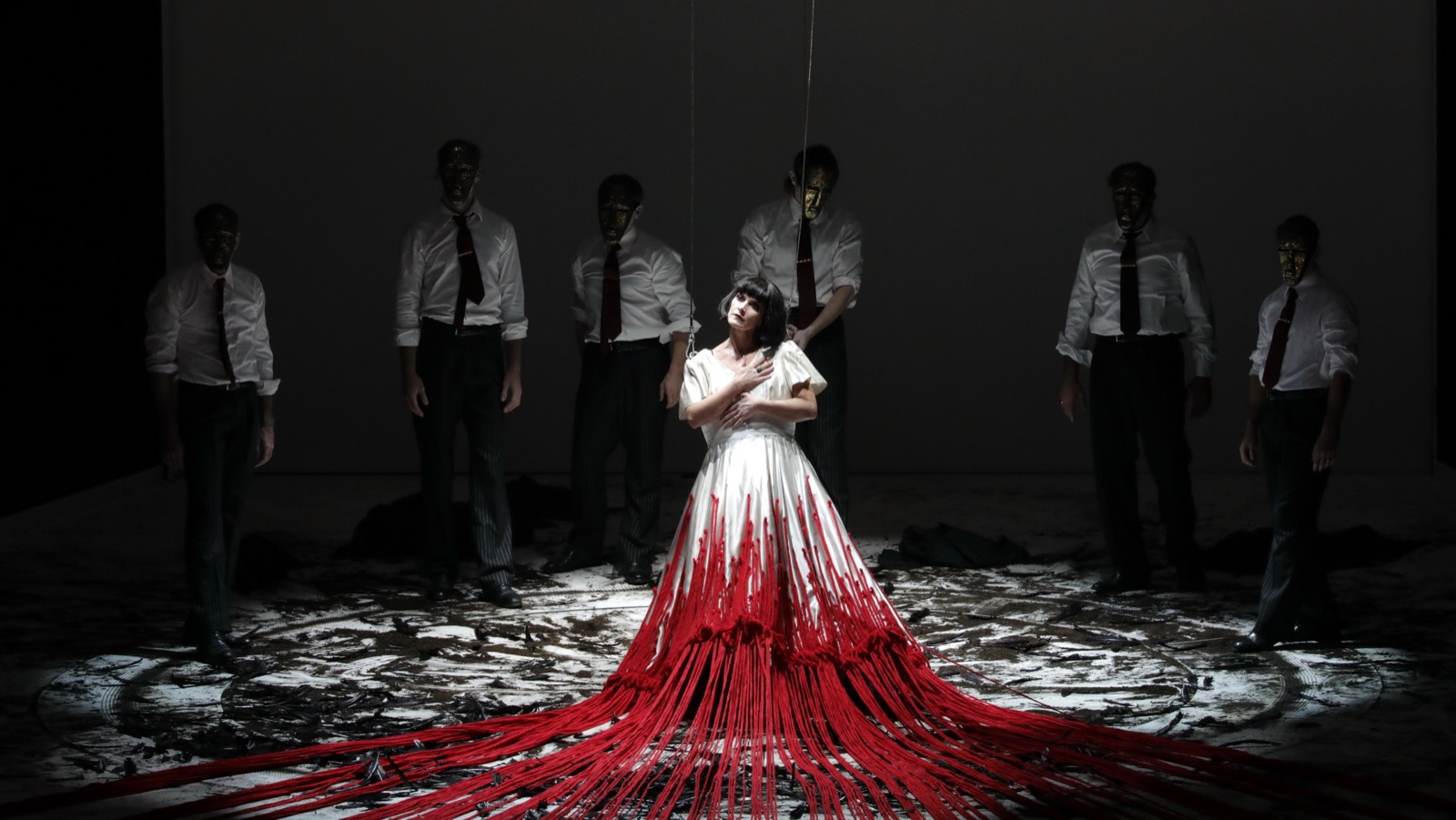The ultimate Femme Fatale – the irresistibly attractive female figure of Salomé became a symbol of inspiration for artists through the centuries. The dramatic and violent story was reproduced in various versions and representations, especially during the Renaissance period, the nineteenth century, the late Romantic and early modern eras thanks to the literature of Oscar Wilde and the famous composition of Richard Georg Strauss. According to Alex Ross, classical music critic, author and writer at New Yorker. “To say that Richard Strauss’s Salome is your favorite opera is a bit like saying that “The Shining” is your favorite film or that Edgar Allan Poe is your favorite author: it marks you as a macabre outcast with goth preferences.”
I cannot deny any of these charges after the unforgettable Damiano Michieletto produced Salome, accompanied by Oscar Wilde’s sensitive text, which I had the chance to attend on the 1st of February at la Scala with Axel Kober and Michael Güttler on the podium. We live in 2023 and the new “urban fabric and abstract language” of Milan’s increasingly modern character made it necessary for La Scala to be better integrated with its surroundings in the sense of content. Even an iconic opera house like La Scala must create programming to build the audience of tomorrow. As a representative of the young audience, I can certainly say that 1 hour and 45 minutes weren’t enough for me. From the first scenes, the audience realizes that the moon plays a critical role in Strauss’s Salome by observing silently the tragic figures from above. The opera is one act divided into four scenes. Princess Salome is obsessed with the mysterious prophet Jokanaan. All she wants to do is kiss his mouth. When Jokanaan turns down her advances, Salome demands from her stepfather, King Herod, the unthinkable: the head of the prophet on a silver platter.
Salomé has been regarded as an excellent example of symbolist drama in the history of theatre. While in classic storytelling, the main character of Salomé is seen as an archetypal femme fatale, Michieletto portrays this Salomé as a victim of abuse, a young woman traumatized by the violent behavior of her stepfather and makes her the character that most arouses the audience’s empathy. During the play, Freudian interpretations with flashbacks appeared from the tender childhood age of the main character through happy, innocent memories with her father.
The long-awaited scene of Salomé’s erotic dance is replaced by a scene of gang rape and a dramatic debut in which she is wearing a dress soaked in blood. After this traumatic event, the lack of trust makes her reject all male attempts to classify her sexuality to gain control over it and leads to a feeling of disempowerment among the male characters. The director creates a new dichotomised division and gradually decomposes it. Light vs darkness, good vs evil, black moon vs glaring sun, virgin vs whore, blind faith vs sexual lust. Through this method, the viewer realizes how fragile is the moral system. The darkness (primitive instincts) is powerless without the light (ethical values) and vice versa. The Grand Finale: When the curtains closed for the last time at this final play of Salomé for 2023, each audience member found their own reflection in what they saw and felt. Different perspectives compose various realities.
 https://www.nastymagazine.com/wp-content/uploads/2015/06/MG_5540.jpg
800
1200
admin
https://www.nastymagazine.com/wp-content/uploads/2015/02/new-logo-basker-WHITE4.png
admin2015-06-23 11:50:132015-07-03 19:06:09We need to talk about Tegan
https://www.nastymagazine.com/wp-content/uploads/2015/06/MG_5540.jpg
800
1200
admin
https://www.nastymagazine.com/wp-content/uploads/2015/02/new-logo-basker-WHITE4.png
admin2015-06-23 11:50:132015-07-03 19:06:09We need to talk about Tegan
















